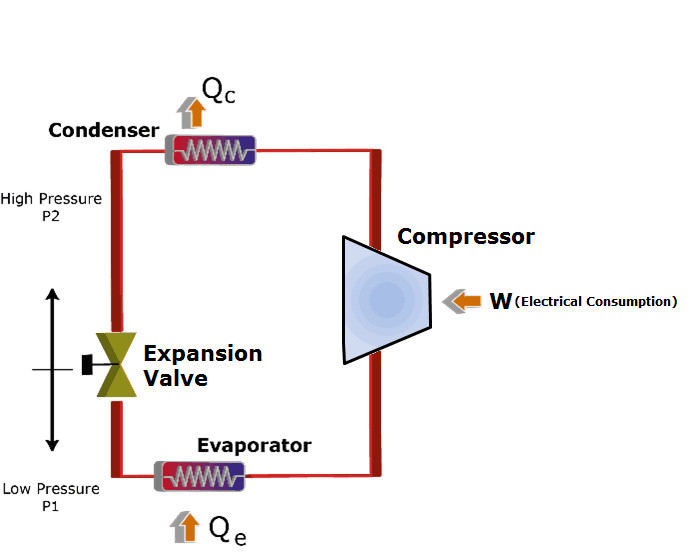Table of Contents
Are you ready to explore the boundless possibilities of Artificial Intelligence (AI) and Machine Learning (ML)? A career in engineering can be one of the most exciting, fulfilling, and rewarding experiences available. It’s an opportunity to not just make a difference, but also have a major impact on our society due to the endless applications of AI and ML.
In this blog, we’ll talk about what you need to do to become an engineer in AI and ML, what skills are required for this career path, the different types of engineering roles available in this field, and how you can get started building your career. So read on if you’re ready for a thrilling journey into the world of AI and ML engineering!
Why an engineering career in AI and ML is exciting
An engineering career in AI and ML is one of the most exciting opportunities available today. As technology continues to advance, AI and ML are becoming more prevalent in everyday life. From self-driving cars to facial recognition systems, the potential applications for these technologies are virtually limitless.
With a career in engineering focused on AI and ML, you can be at the forefront of this technological revolution – designing solutions that have real-world impact and change lives for the better. The possibilities of what can be achieved with this technology are truly inspiring; it’s an opportunity to make a difference through your work while having fun doing it!
Moreover, a career as an engineer in Artificial Intelligence (AI) or Machine Learning (ML) provides you with incredible flexibility and autonomy when it comes to how you want to build your skill set.
You will get access to cutting-edge research developments from top universities around the world which can help you stay ahead of the competition while also learning new techniques that could potentially become industry standards tomorrow.
Plus, since these technologies are still relatively nascent compared to other areas like software development or hardware design, there is plenty of room for innovation – allowing engineers who specialize in this area to stand out from their peers even further than normal!

The boundless possibilities of what AI and ML can do
The possibilities of what AI and ML can do are truly boundless. From medical diagnostics to autonomous vehicles, the application of these technologies is quickly revolutionizing many aspects of our lives. For example, self-driving cars are already on the roads in some cities, with more testing taking place every day.
Furthermore, AI has enabled us to make incredible advances in healthcare – from personalized medicine that tailors treatments according to a patient’s individual needs, to virtual assistants that help Patients be better able to manage their conditions than ever before.
What makes AI and ML so unique is their potential for scalability: as computing power increases and algorithms become more advanced we will be able to automate even more complex tasks like facial recognition or natural language processing (NLP).
This technology could eventually revolutionize how we interact with computers or robots – helping us replace mundane tasks with intelligent systems that can understand our instructions as well as anticipate our needs.
In addition, this technology could also help us solve global challenges such as climate change by providing powerful insights into large data sets which would otherwise take humans years to analyze manually. The possibilities here quite literally seem endless!
The skills you need for an engineering career in AI and ML
An engineering career in AI and ML requires an extensive set of skills, knowledge, and experience to be successful. Firstly, engineers must possess a deep understanding of advanced mathematics – including calculus, linear algebra, statistics, and probability theory. They also need to have expertise in software development as well as programming languages such as Python or Java.
In addition, they should understand the underlying architecture of neural networks and machine learning algorithms – allowing them to design systems that can effectively process large amounts of data and make accurate predictions over time.
Furthermore, engineers working with AI/ML must have strong problem-solving abilities so that they can identify potential solutions for complex issues quickly and efficiently. This includes being able to break down problems into smaller manageable parts while considering all possible options before arriving at a decision.
Finally, these professionals need to stay up-to-date on the latest developments within this field; attending conferences or reading industry publications are great ways to do this! By having a thorough understanding of both the technical side of things as well as its practical applications you will be able to set yourself apart from other engineers working in this space – enabling you to stand out even further than normal!
The different types of engineering careers in AI and ML
The engineering careers in AI and ML are incredibly diverse, offering a range of exciting opportunities to work on cutting-edge projects. From developing robotic systems that can understand instructions and anticipate needs, to designing algorithms that can process large data sets quickly – there is something for everyone!
One popular role within this field is an AI/ML engineer who specializes in creating models which allow machines to learn from data and make decisions autonomously. This type of engineer must have a deep understanding of mathematics, software development, and programming languages such as Python or Java – enabling them to develop sophisticated solutions for complex problems.
Another area where engineers are making great strides is natural language processing (NLP). In NLP, engineers use algorithms to teach computers how to interpret human language so that they can accurately respond to written or spoken commands.
This technology has already been used by companies like Amazon Alexa or Google Assistant; allowing us to access helpful information with just our voices! Finally, AI/ML engineers also focus on computer vision technologies which help machines recognize objects in images or videos –
opening up the possibility of self-driving cars becoming commonplace on our roads soon! With all these incredible engineering career options available it’s easy to see why so many people are turning towards this field; providing you with the perfect opportunity for personal advancement while having fun at the same time!
How to get started with an engineering career in AI and ML
Getting started with an engineering career in AI and ML is easier than ever before. First, it’s important to invest time into learning the basics of computer science, mathematics, software development, and programming languages such as Python or Java; this will give you a strong foundation for understanding how algorithms work and building your models.
Once you have these essential skills under your belt, then it’s time to start exploring the different areas within AI/ML – from natural language processing (NLP) to computer vision technologies – so that you can find out which area interests you the most.
The next step is to build up your portfolio by taking online courses or participating in hackathons related to AI/ML; this will help demonstrate both your technical knowledge as well as practical experience when applying for jobs.
Finally, networking is another key component of getting started; attending industry events or following influencers on social media are great ways of meeting like-minded people who may be able to offer valuable advice! With determination and hard work, there is no limit to what you can achieve in this exciting field – all it takes is dedication and effort!
Engineering a career in AI and ML is an adventurous, rewarding journey that can provide you with the means to make an impact on the world. With this industry practically unlimited in its potential, you have the opportunity to develop projects and systems that fulfill needs from medical treatments to transforming industries.
Establishing yourself as a competent engineer requires knowledge of mathematics, statistics, programming, and electronics as well as due diligence and critical thinking skills.
From data scientists to developers to solutions architects – there is something for every passion and interest available within AI and ML engineering. By getting certified or learning through coding challenges or schooling – you can become part of this revolution with knowledge at hand; leaving nothing stopping your success except your own will!
FAQ’S
What is a career in artificial intelligence and machine learning?
A career in artificial intelligence (AI) and machine learning (ML) involves working with advanced technologies to develop intelligent systems that can learn from data and make predictions or decisions. Professionals in this field analyze large datasets, develop algorithms, and create models to solve complex problems across various industries.
What educational background is required for a career in AI and ML?
A career in AI and ML typically requires a strong educational foundation in computer science, mathematics, or a related field. Many professionals have a bachelor’s or master’s degree in these areas, although some positions, particularly in research or academia, may require a Ph.D. It is also beneficial to have knowledge of statistics, data analysis, and programming languages such as Python or R.
What are the job prospects in AI and ML?
The job prospects in AI and ML are promising and continually expanding. Industries such as healthcare, finance, manufacturing, and technology are actively seeking AI and ML professionals to develop innovative solutions. Job roles can include machine learning engineer, data scientist, AI researcher, AI consultant, and AI project manager. The demand for skilled professionals in this field is expected to grow rapidly in the coming years.
What skills are essential for a career in AI and ML?
Essential skills for a career in AI and ML include proficiency in programming languages such as Python or R, strong mathematical and statistical knowledge, data analysis and visualization skills, and experience with machine learning algorithms and frameworks. Additionally, critical thinking, problem-solving abilities, and an understanding of ethical considerations in AI and ML are highly valued.
How can I gain practical experience in AI and ML?
Gaining practical experience in AI and ML can be accomplished through various means. Participating in projects, internships, or research opportunities during your education can provide hands-on experience.
Additionally, you can work on personal projects, contribute to open-source AI/ML projects, and join online communities or competitions focused on AI and ML. Continuous learning and staying updated with the latest developments in the field are also crucial.What are the ethical considerations in AI and ML careers?
Ethical considerations are significant in AI and ML careers due to potential biases, privacy concerns, and social implications. Professionals in this field must prioritize fairness, transparency, and accountability in their work. They should be mindful of the impact their algorithms and systems can have on individuals and society, ensuring they are designed and deployed responsibly, respecting privacy, and mitigating biases or discrimination.
































Comments on “Engineering Career In Artificial Intelligence and Machine Learning”
Comments are closed.